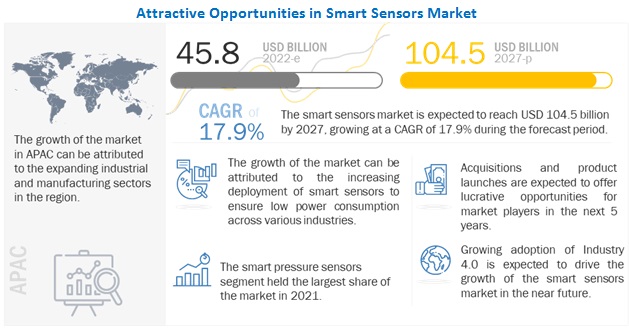The advance in semiconductor technology is has made a progress in sensor which plays an important role in many applications such as consumer electronics, automotive, aerospace and defence, industrial, healthcare and so on. Nowadays, most of the sensors have smart feature which includes integrated electronics and sensing element on same chip. The advantage of smart sensor includes high signal-to-noise ratio, auto calibration, high reliability, failure detection and so on.
Smart sensors have currently established a strong presence in consumer electronics application. The demand of smart sensors in building automation application is increasing due to energy efficiency. A smart sensor has multi-sensing capability which measure temperature, pressure, flow, pH level, oxygen and it is also cost effective due to less hardware.
Smart sensor in wearable devices plays a vital role especially in medical application. Smart sensor market in medical application is expected to have maximum market share in the coming years. Medical application includes sensor fusion, blood glucose monitoring, smart biomedical sensors, and so on. Recent advances in sensor manufacturing have opened up new potentials for using wearable technology in the healthcare environment to attain a range of health results. Some sensors such as temperature, pressure, touch incorporated in wearables are widely used by user to gather computed data about their health. The smart sensor integrated wearables devices send alarm signals to caregivers by detecting falls and heart attacks in users.
Miniaturization and decreasing cost of smart sensors are the major driving factors of smart sensor market. Consumer electronics and healthcare sector will also provide a high opportunity for the smart sensor market to capture maximum market share in the next few years. The advances of new sensors due to the latest technological breakthroughs have made the overall processes more efficient and accurate in various applications.
For more detailed information click here

